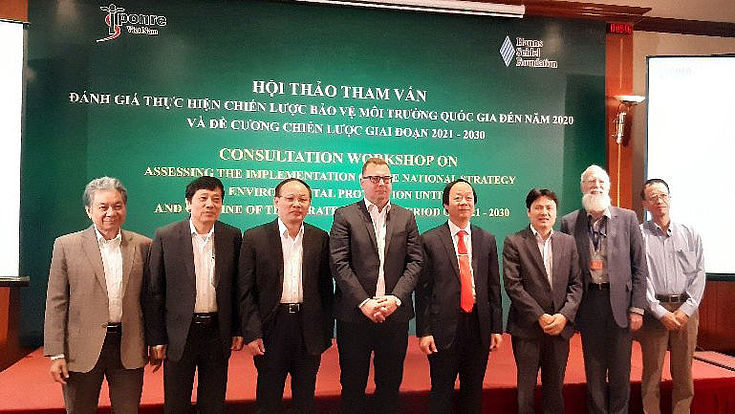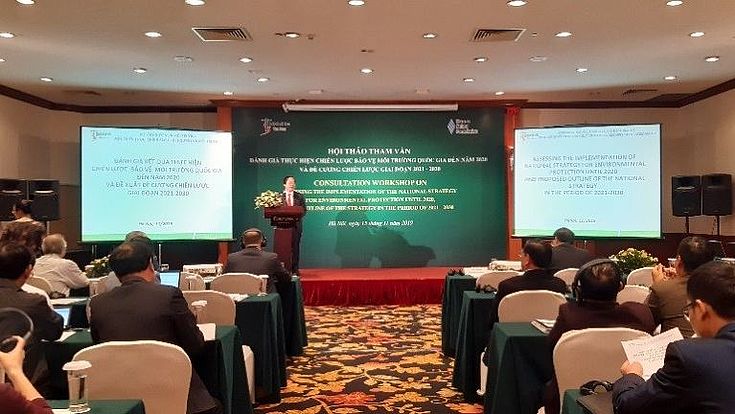MONRE and ISPONRE Consultation Workshop
Assessing the implementation of the National Strategy for Environmental Protection until 2020 and vision towards 2030
Representative of HSF, MONRE and ISPONRE
HSF
The National Strategy for Environmental Protection until 2020 und vision toward 2030 was being issued on the 5th September of 2012 by the Prime Minister. The strategy has provided directions to environmental protection activities and has achieved positive results, such as improvement for institutions and policies on environmental protection. However, there are still many shortcomings and limitations as a result of continuous change of factors affecting the environment. For instance, the environmental pollution continues to increase, and the area of natural ecosystems decreases sharply. The domestic wastewater in most urban and residential areas is not treated and the investment in environmental protection is still limited and inefficient. The awareness and responsibility of state management agencies businesses and people are limited.
Thirty years ago, Vietnam was largely isolated and now Vietnams economic is growing and has expanded its relations with many countries and regions. It became a member of many large economic and trade organizations such as EVFTA, ASEAN and WTO. During the opening speech of the consultation workshop Vice Minister Nguyen Tuan Nhan underlined the area of conflict and the aspirations of Vietnams Government to promote and strengthen environmental awareness alongside economic growth.
“The Vietnamese Government reconfirms not to sacrifice the environment for economic growth. Yet, despite the government´s effort in strengthening the State´s management, Vietnam still faces several environmental challenges including environment deterioration and exhaustion of natural resources. To face the challenges in the new period, it is an urgent task to review the results from the Environmental Protection Strategy until 2020 and develop the Environmental Protection Strategy for the new period 2021-2030.”
He further stressed:
“Environmental Protection Strategy should propose transformative to environmental challenges and institutionalize environment protection as one of three strategic tasks of the socio-economic development plan.”
HSF
The implementation of the National Strategy has already achieved results as the municipal solid waste collection rate has been increased to 86 percent compared to 82-84 percent in 2012. The rate of hazardous waste collection and treatment raised from 65 percent in 2010 to 75 percent. Furthermore, the awareness and understanding of climate change has been raised one more step and the prevention and response to natural disasters continue to be promoted. Climate change has been integrated into socio-economic and sectoral development strategies and plans.
Despite the success, Vietnam still faces many challenges. Environmental pollution, such as air pollution, still exceeds the tolerance level in many places sometimes. The Enforcement of laws on Environmental Protection is weak and violations of these laws still occur in many places. Resources for environmental protection are limited while the demand for environmental protection is increasing. Also, the budget of environmental protection does not meet the demand.
To fulfill the vision towards 2030 issued the Government a five-year socio-economic development plan in 2016. One of the tasks of the Ministry of Natural Resources and Environment (MONRE) was to develop the National Strategy for Environmental Protection until 2030 and vision toward 2040 in the coming period.


